Lack of vaping regulation prompts calls for investigation by doctors
Doctors are being encouraged to start asking their patients about this after thousands exhibited coronavirus-like damage to their lungs.
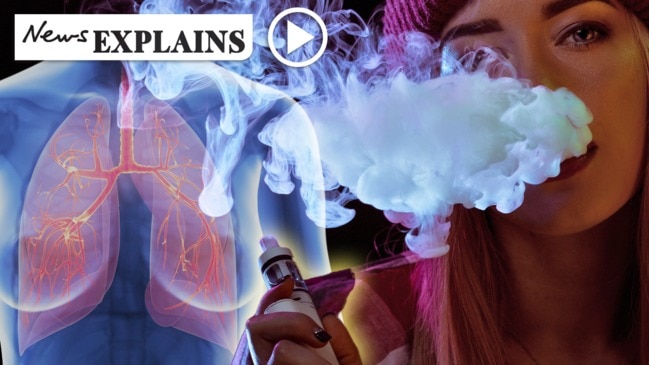
Your doctor could be asking you a new question next time you go in for a check-up: do you vape?
And it’s not because they’re keen to have a try of your new e-cigarette or sample your latest vape juice imported into the country over the internet.
Doctors are becoming increasingly concerned over the use of e-cigarettes and vapes amid fears the industry isn’t regulated properly.
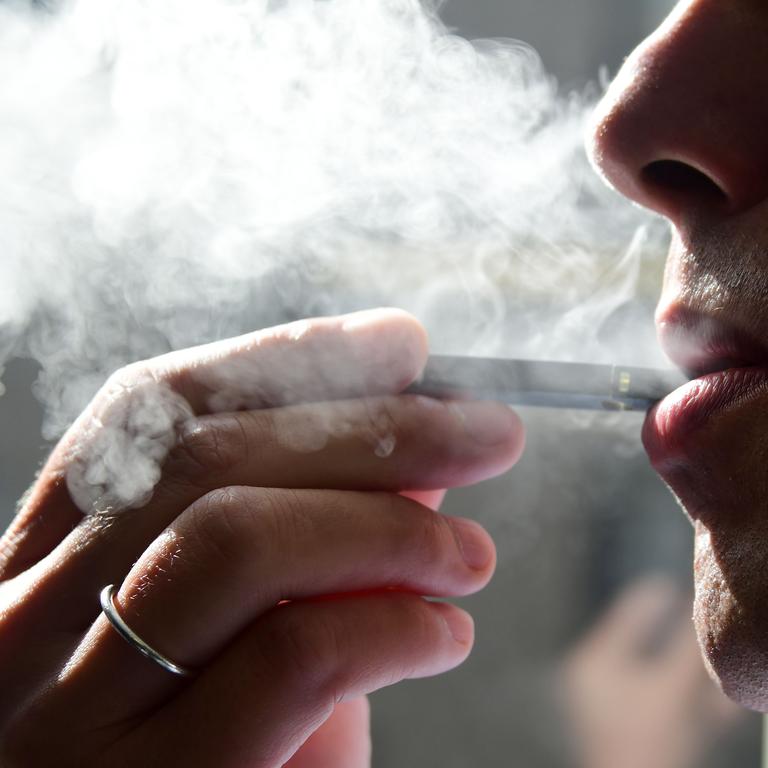
RELATED: Quitting smoking made me a criminal
The Medical Journal of Australia has published a call for further investigation of vaping by doctors from researchers at Alfred Health, led by Dr Eli Dabscheck.
Dr Dabscheck and his colleagues advised physicians to start asking patients about e-cigarette use and warning them about the potential dangers, but notes more research is required to determine what those dangers are.
“Australian clinicians should maintain vigilance and ask every patient about e-cigarette use,” Dr Dabscheck and colleagues Maitri Munsif and Mark Hew wrote.
But the group advised that adults using e-cigarettes as an alternative to cigarette smoking should not revert back to old-fashioned smoking, the dangers of which are well established.
“A reasonable and precautionary strategy is to advise patients that little is known about the long term effects of e-cigarettes, and also to inform users that severe lung disease and death have occurred mainly with unregulated solutions,” Dr Dabscheck and colleagues noted.
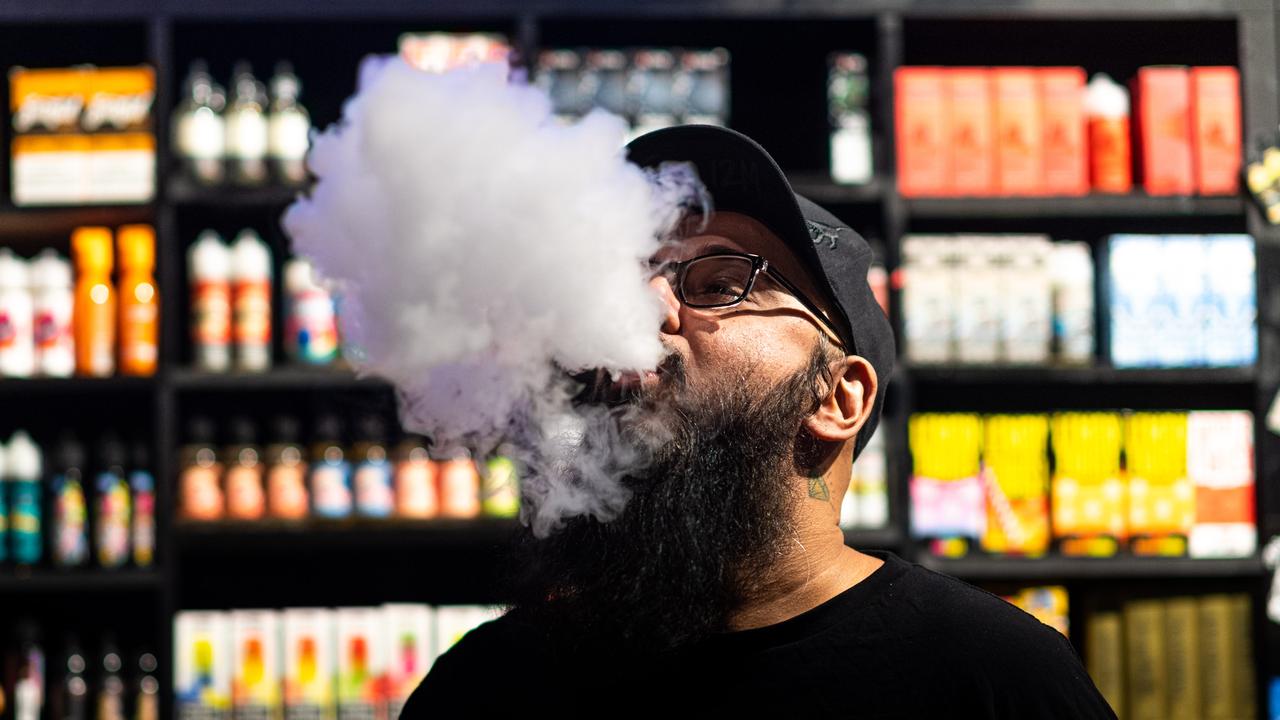
The group called attention to a recent spate of hospitalisations and deaths in the US linked to vaping, describing “EVALI” (e-cigarette or vaping product use-associated lung injury) in patients.
“Patients with EVALI typically present with both respiratory (dyspnoea, cough, fever) and gastrointestinal (nausea, vomiting, diarrhoea, abdominal pain) symptoms,” the group said.
“Usually, there is no prior history of respiratory disease. Diagnosis may be challenging, as EVALI can mimic infective pneumonia and gastrointestinal symptoms may sometimes precede respiratory symptoms.”
Dr Dabscheck and co warned the damage to the lungs can be severe enough to require invasive ventilation and intensive care, similar to the damage that can be caused by coronavirus.

In their research, the Alfred Health team noted medical imaging yielded “ground glass opacities” in scans, suggesting widespread damage to the lungs.
Analysed tissue samples have shown acute lung injuries and damage as well.
The damage is in line with the reported effects of pneumonia and coronavirus.
The data was drawn from thousands of US patients hospitalised last year, of which 68 died, beginning in Illinois in August.
But it wasn’t vaping itself that’s believed to be the real reason they died – rather what was put in the liquids they vaped.
Four out of every five patients that was hospitalised reported vaping products that contained tetrahydrocannabinol (THC) oil or cannabinoids.
THC is the main active ingredient in cannabis.
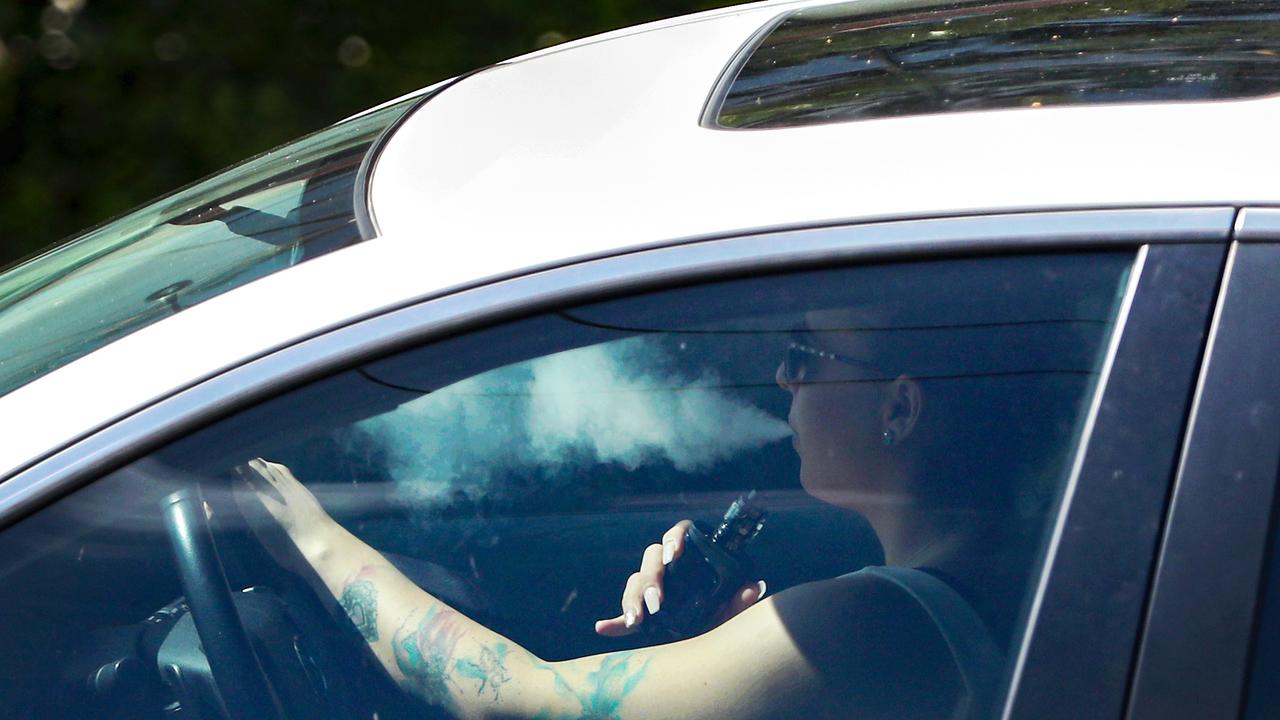
The legality of cannabis in the US differs across states and even cities, as well as by product. THC oil is legal in some places but not others, not that its legality has much impact on its accessibility.
The Alfred Health researchers said 84 per cent of the THC products reportedly used by EVALI patients had been “acquired via informal channels and were probably made outside of regulated facilities”.
The data was self-reported, so might not represent the full scope of the problem (due to people being scared to admit how they obtained the product).
Only 13 per cent of EVALI patients reported exclusively using nicotine containing products in their vape (though some samples reportedly showed traces of THC in them anyway).
“There may be unreliable self-reporting and it is possible that the nicotine e-cigarettes may have been contaminated by black-market THC additives,” wrote the authors.
But they’re not blaming THC for the actual problem.
“There is mounting evidence that a specific additive to vaping solutions – vitamin E acetate – played a major role in the 2019 EVALI outbreak.”
Vitamin E acetate is often safely used in skin care products like lotions, but when inhaled it can damage the lungs.
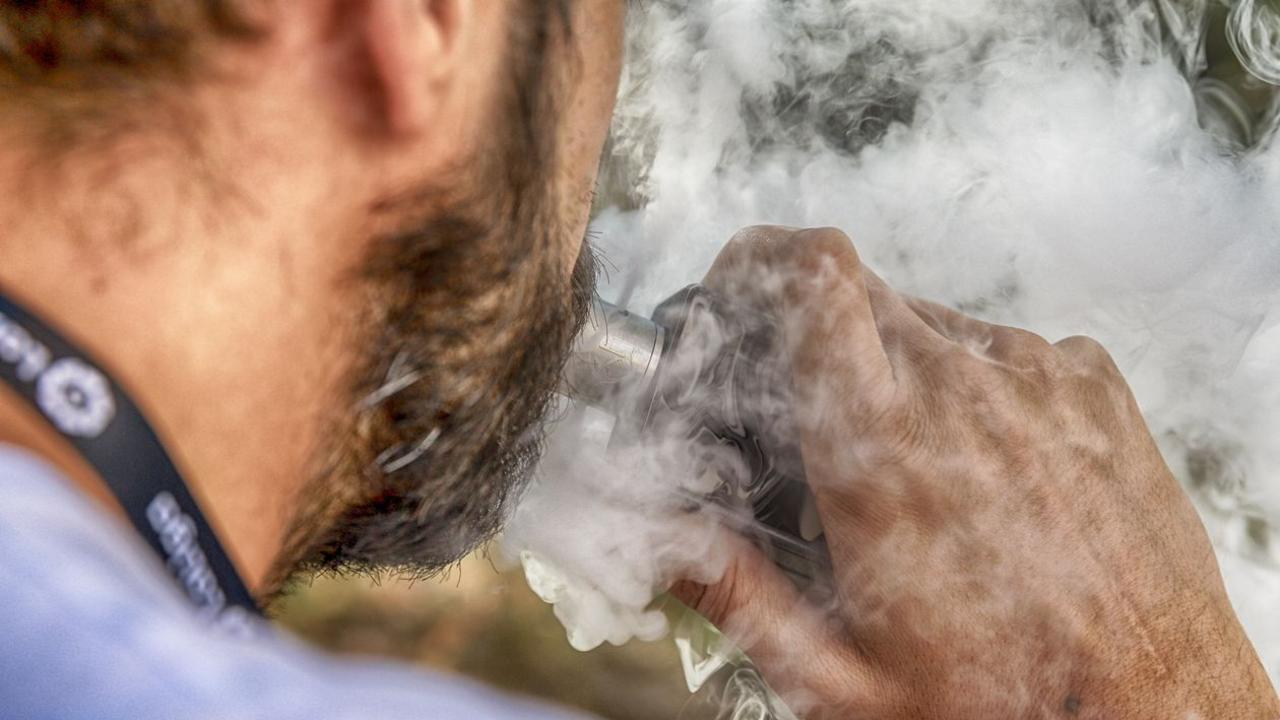
The US Centres for Disease Control has previously pinned last year’s outbreak of EVALI on vitamin E acetate.
Samples from 51 EVALI patients in 16 US states showed vitamin E acetate in 94 per cent of them.
The call for doctors to start asking their patients about e-cigarette use comes after school principals in NSW warned it was becoming popular in students.
According to the Sydney Morning Herald, principals at a number of schools had sent home guidance to parents about vaping.
In one letter sent to parents after a student set off a fire alarm while vaping in the bathroom at Willoughby Girls school, principal Elizabeth Diprose reportedly wrote that “students have been told to immediately stop any involvement they may have in vaping”.
While doctors warn unregulated vape liquids could put users in danger, attempts to regulate vaping have recently hit stumbling blocks.
The federal government has proposed banning the importation of vape products containing nicotine (unless prescribed by a doctor) from 2021.
But that ban was supposed to start two weeks ago.
The implementation was pushed back six months, three days after Coalition MPs including Matt Canavan and George Christensen revolted against Health Minister Greg Hunt’s plan.
RELATED: Australia set to ban import of e-cigarettes and nicotine refills
Australia is 1 of only 2 developed countries that hasn’t legalised e-cigs. Fines of up to $220k for importing what is in most countries a legal product is overkill. We should regulate it so it’s sold safely. Sign our petition at https://t.co/QhSnRAptAk
— Matthew Canavan (@mattjcan) June 24, 2020
Minister Hunt said the ban was being pushed back in order to “provide further time for implementation of the change by establishing a streamlined process for patients obtaining prescriptions through their GP”.
The Royal Australian College of General Practitioners has supported the ban on imports.
“There are concerns about safety and long-term health effects of e-cigarettes, including on smoking uptake, and the college strongly supports the precautionary approach taken by the Australian government,” the College said in a statement.
Selling e-cigarettes containing nicotine is already against the law in all states and territories.
What do you think of the bans on vaping? Have your say in the comments below.



